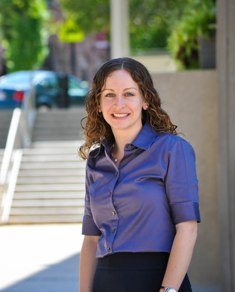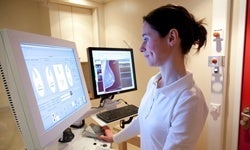Dramatic improvements in outcome following pancreatoduodenectomy for pancreatic and periampullary cancers.
Xu H, Bretthauer M, Fang F, Ye W, Yin L, Adami HO.
Br J Cancer. 2024 Jun 27. PMID: 38937622
With a long background as a practicing surgeon with a focus on oncology, I have always conducted clinical and epidemiologic research in parallel. My clinical research includes randomized trials, prognostic studies, and studies of clinical issues using an observational study design. Over the years, however, my focus has been on cancer epidemiology, and I have worked on a large number of cancer sites and types. Currently, I am working predominantly on prostate cancer, (with research ranging from genetic association studies to randomized trials of radical surgical treatment, and prediction of outcome using molecular and genetic markers), malignant lymphomas, cervical cancer (with a focus on viral load as a possible determinant of progression from precursors to invasive cancer), and breast cancer. I am also involved in planning a large prospective cohort study in Sweden, and integrating this with other similar initiatives
around the globe.
Other Affiliations
Professor Emeritus, Karolinska Institutet, Stockholm, Sweden
Associate Director of Populations Sciences, Dana Farber/Harvard Cancer Center
Research
My research is devoted chiefly, but not entirely to cancer epidemiology. Within that area, I have been interested in a large number of cancer sites and types and carried out both prospective and case-control studies often on a large-scale within Sweden. Hence, we have conducted nation-wide case-control studies in Sweden on cancers of the breast, cervix, endometrium, ovary, anus, esophagus, non-Hodgkin’s lymphomas, Hodgkin’s lymphomas, kidney cancer and prostate cancer. Much of my research over the last decade has been carried out in close collaboration with professor Trichopoulos at the Harvard School of Public Health and also with other researchers, post docs and graduate students at the SPH. Presently, this work is expanding also into realm of prostate cancer in collaboration with the Dana Farber Cancer Institute. Beside etiologic research into the causes of cancer, I have also a long-standing interest in clinical research including randomized trials, cancer screening and analysis of prognostic factors.
A large part of the research carried out at Harvard and at the Karolinska Institutet in Stockholm takes advantage of unique prerequisites for epidemiologic research in Sweden, including nation-wide cancer registration, a public health care system that allows retrieval of information, hospital records, tissue specimens etc., and an expanding number of national health data bases that can be cross-linked using the individually unique national registration number assigned to all residents in Sweden. This registration number also enables complete follow-up long-term of virtually all individuals included in epidemiologic and clinical studies.
In recent years, collaboration and exchange of Junior Faculty, post docs and graduate students has become an important ingredient in the research carried out collaboratively between Karolinska Institutet and the Harvard School of Public Health. Given the enormous prerequisites for epidemiologic research in Sweden, this is an untapped resource and we have a keen interest in both recruiting post docs from the School of Public Health and in offering graduate students at Harvard opportunities to use Swedish data sources and on-going studies for their thesis work. More information about these opportunities can be obtained for example from Dr. Lorelei Mucci and from Dr. Ellen Chang.
M.D., Medicine
Uppsala University, Sweden
Ph.D., Surgery
Uppsala University, Sweden
Xu H, Bretthauer M, Fang F, Ye W, Yin L, Adami HO.
Br J Cancer. 2024 Jun 27. PMID: 38937622
Herweijer E, Hu K, Wang J, Lu D, Sparén P, Adami HO, Valdimarsdóttir U, Sundström K, Fang F.
PLoS Med. 2024 Mar 25. 21(3):e1004372. PMID: 38527071
Von Holle A, Adami HO, Baglietto L, Berrington de Gonzalez A, Bertrand KA, Blot W, Chen Y, DeHart JC, Dossus L, Eliassen AH, Fournier A, Garcia-Closas M, Giles G, Guevara M, Hankinson SE, Heath A, Jones ME, Joshu CE, Kaaks R, Kirsh VA, Kitahara CM, Koh WP, Linet MS, Park HL, Masala G, Mellemkjaer L, Milne RL, O'Brien KM, Palmer JR, Riboli E, Rohan TE, Shrubsole MJ, Sund M, Tamimi R, Tin Tin S, Visvanathan K, Vermeulen RC, Weiderpass E, Willett WC, Yuan JM, Zeleniuch-Jacquotte A, Nichols HB, Sandler DP, Swerdlow AJ, Schoemaker MJ, Weinberg CR.
Cancer Epidemiol. 2024 Apr. 89:102545. PMID: 38377945
Sjöblom L, Hantikainen E, Bellocco R, Ye W, Adami HO, Trolle Lagerros Y, Bonn SE.
Eur J Nutr. 2024 Jun. 63(4):1151-1162. PMID: 38353704
Hubbell E, Clarke CA, Smedby KE, Adami HO, Chang ET.
Cancer Epidemiol Biomarkers Prev. 2024 02 06. 33(2):206-214. PMID: 38019271
Juul FE, Cross AJ, Schoen RE, Senore C, Pinsky PF, Miller EA, Segnan N, Wooldrage K, Wieszczy-Szczepanik P, Armaroli P, Garborg KK, Adami HO, Hoff G, Kalager M, Bretthauer M, Holme Ø, Løberg M.
JAMA Netw Open. 2024 Feb 05. 7(2):e240007. PMID: 38421651
Ding L, Ponzano M, Grotta A, Adami HO, Xue F, Lagerros YT, Bellocco R, Ye W.
BMC Public Health. 2024 02 02. 24(1):358. PMID: 38308327
O'Grady TJ, Rinaldi S, Michels KA, Adami HO, Buring JE, Chen Y, Clendenen TV, D'Aloisio A, DeHart JC, Franceschi S, Freedman ND, Gierach GL, Giles GG, Lacey JV, Lee IM, Liao LM, Linet MS, McCullough ML, Patel AV, Prizment A, Robien K, Sandler DP, Stolzenberg-Solomon R, Weiderpass E, White E, Wolk A, Zheng W, Berrington de Gonzalez A, Kitahara CM.
Int J Epidemiol. 2024 Feb 01. 53(1). PMID: 38110618
Xu M, Feng R, Liu Z, Zhou X, Chen Y, Cao Y, Valeri L, Li Z, Liu Z, Cao SM, Liu Q, Xie SH, Chang ET, Jia WH, Shen J, Yao Y, Cai YL, Zheng Y, Zhang Z, Huang G, Ernberg I, Tang M, Ye W, Adami HO, Zeng YX, Lin X.
Cell Genom. 2024 Feb 14. 4(2):100474. PMID: 38359790
Huang YH, Loftfield E, Argirion I, Adami HO, Albanes D, Chan AT, Fedirko V, Fraser GE, Freedman ND, Giles GG, Hartge P, Katzke V, Knutsen SF, Lacey J, Liao LM, Luo J, Milne RL, O'Brien KM, Peters U, Poynter JN, Purdue MP, Robien K, Sandin S, Sandler DP, Setiawan VW, Kang JH, Simon TG, Sinha R, VoPham T, Weinstein SJ, White E, Zhang X, Zhu B, McGlynn KA, Campbell PT, Lee MH, Koshiol J.
Hepatology. 2024 Jun 01. 79(6):1324-1336. PMID: 38758104
For immediate release: Tuesday, January 5, 2016 Boston, MA – A large new study of twins has found that having a twin sibling diagnosed with cancer poses an excess risk for the other twin to develop any form of…

For immediate release: Wednesday, March 5, 2014 Boston, MA -- More than 230,000 men will be diagnosed with prostate cancer this year in the United States, but determining their course of treatment remains a source of considerable debate.…

A large new study suggests that mammograms may not save more women’s lives than physical breast exams alone, and in fact may lead to unnecessary treatment of small breast cancers that would likely pose no harm. The Canadian…
Study Suggests Prostate Cancer Management Should Emphasize Healthy Lifestyle Changes Boston, MA – Men diagnosed with prostate cancer are less likely to die from the disease than from largely preventable conditions such as heart disease, according to a…

Late-Stage Disease Incidence Not Reduced by Screening For immediate release: Monday, April 5, 2012 Boston, MA – New Harvard School of Public Health (HSPH) research suggests that routine mammography screening—long viewed as an essential tool in detecting early…
